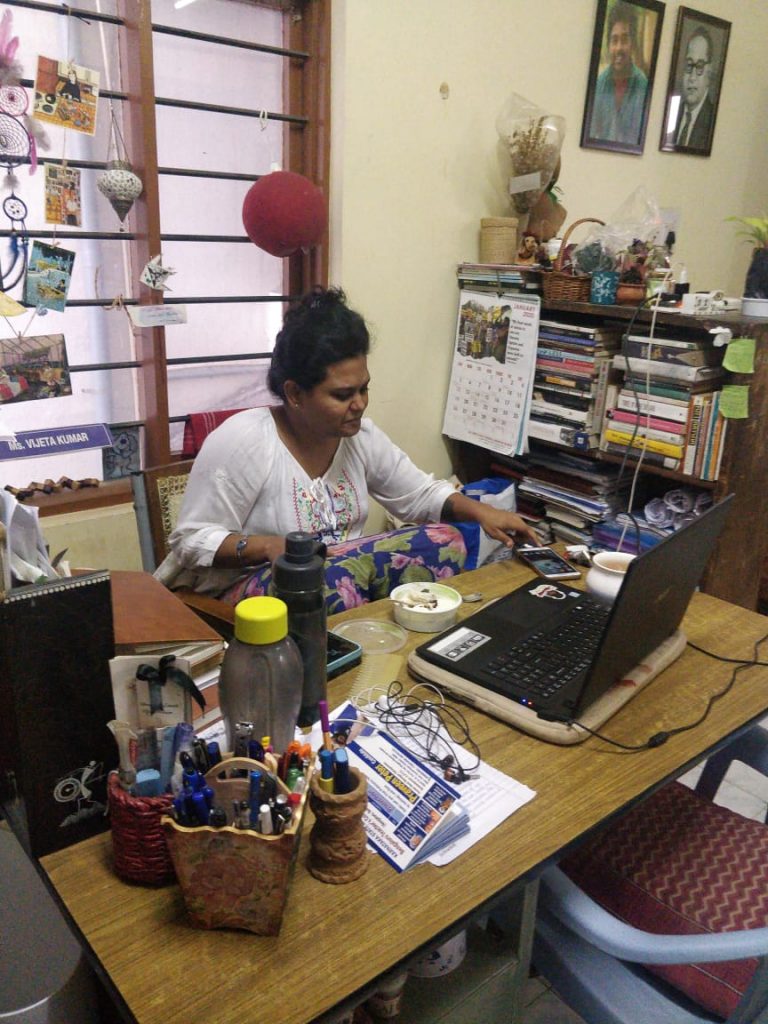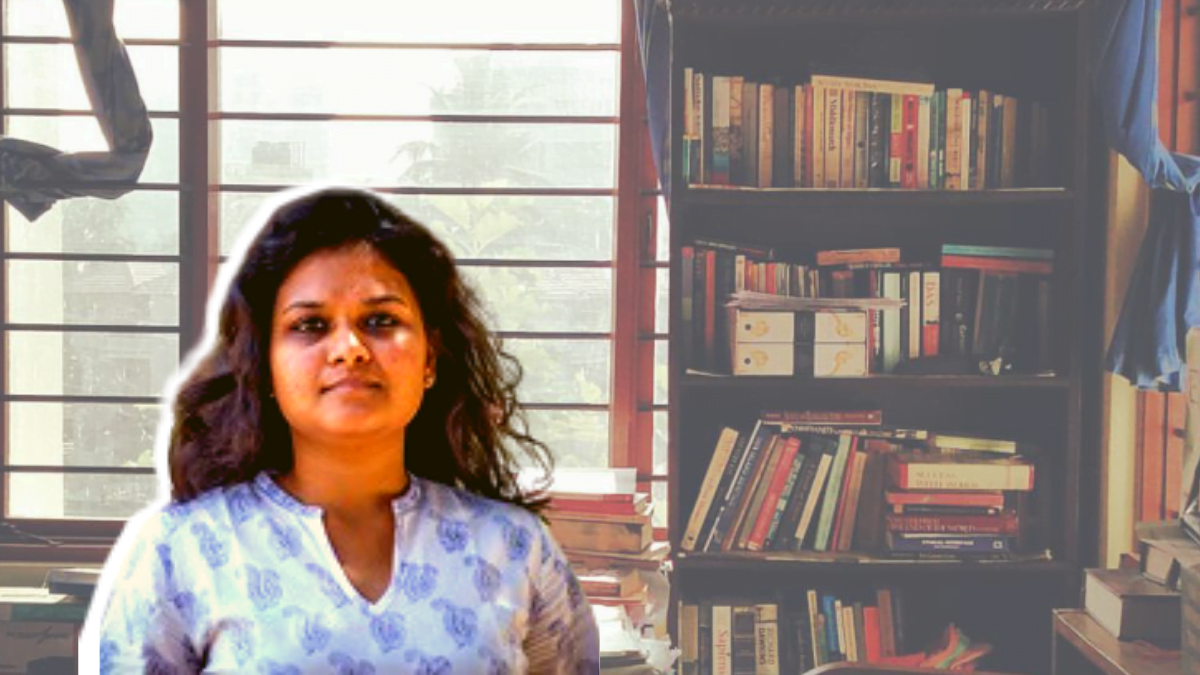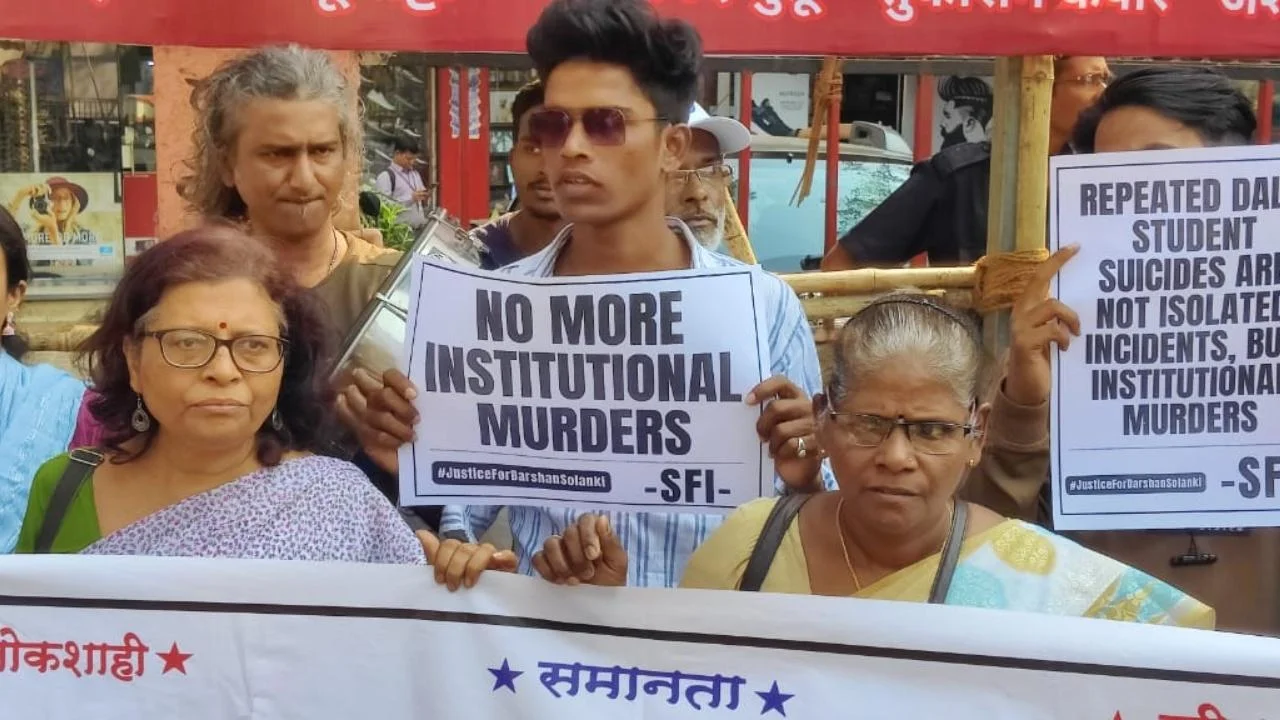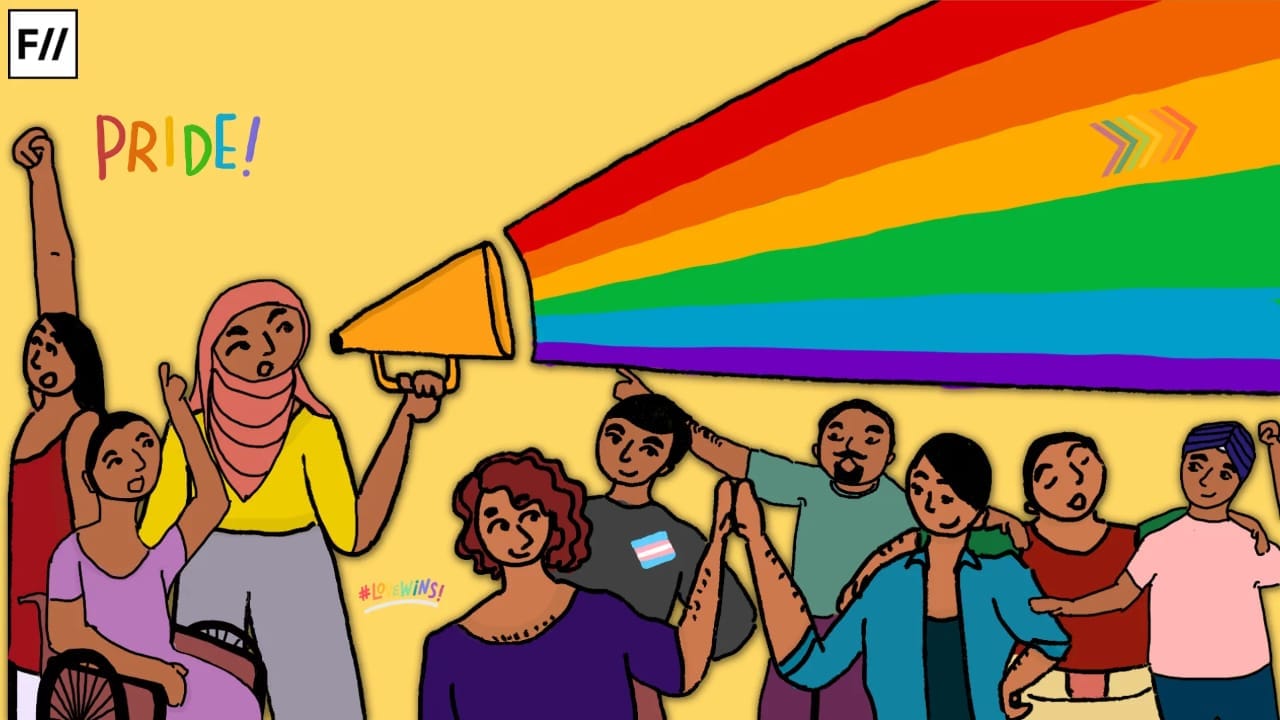To write about someone whose work you admire with the knowledge that they might read what you have said about them is thrilling, but mostly terrifying. Writing (dear reader—let’s just call this a love letter, already) then becomes a delicate dance between the extremes of flattery and insufficient expression of appreciation. I am writing this essay from that very space. “I broke down in class last week when I was reading out this piece by a student. I haven’t wept in class before.” This is how I was introduced to Vijeta Kumar’s writing and politics.
These were the very first two sentences that I had read by her; I had to read them more than twice to finally believe that I was reading them correctly. I mean, how often do we see nakedness of sentiments coexist with academicians?
Vijeta Kumar teaches English at St. Joseph’s College, Bangalore. She is also a writer and has written for Firstpost, Huffpost India, India Today, The Hindu Business Line- Blink, The Ladies Finger, The Open Dosa, Deccan Herald amongst other platforms, but the best way to read her work and to know her more as an individual is to head to her blog rumlolarum (heads up: deadlines will be missed!)
I write this as I listen to her talk about Dawn Powell’s stories where women more than often dream about running away to somewhere else—anywhere just not here. Vijeta likes to think of writing as her way of returning to hear her own self amidst the perpetual cacophony of the world. One theme that she often returns to is “reading and dreaming about writing”, the complicated relationship that the writer shares with her writing process that requires her to pull herself away from the dream, and assemble words to tell her stories that are inseparable from the history of a people. She elaborates:
“I feel that when Dalits write, we write from our bodies. There is something called full-body reading, I am advocating ‘full body writing’; it means to write as if the words are all coming from the gut, heart, liver, teeth, eyes. It’s how Gogu Shyamala writes, it’s how Ambedkar also wrote. It’s how I am learning to write.”
Vijeta Kumar writes extensively about her attempts as a Dalit professor to break away from the Brahmanical construction of a teacher as a sacrosanct authority figure in a pre-dominantly savarna classroom and how classrooms can be truly transformative if teaching is thought of as a humbling process—a conversation. We get to know her as a teacher and a writer who continuously highlights the inevitable failure of the existing dichotomy of rationality and emotionality in academia.
“Maybe that’s how one must do stories in classrooms. As though something of value was sacrificed for it. As though without you, they would just burst into tiny puffs of smoke and disappear.”
She talks about crying as she reads an essay by her student; about waiting for a class of students that she loved to apologise for being hurtful towards her and the sadness that arrived when they didn’t; she writes about looking at her students during the screening of a film or a documentary in an effort to get closer to what moves them into giggles, tears and fascination and as I read her work, I almost wish that I could sit in that class just to have a teacher want to know me like that.

Image Source: rumlolarum
In her essay about Kancha Ilaiah’s memoir From a Shepherd Boy to an Intellectual, she writes about the loneliness that awaits Dalit-Bahujan-Adivasi scholars in academia which more than often wears a cloak of progressiveness and castelessness, the kind of cultural capital that allows some to just be in classrooms and at the same time, exclude others from it and the savarna obsession with “nuance” which must be understood as just another way to maintain their illegitimate hegemony in the realm of knowledge production.
Vijeta Kumar writes extensively about her attempts as a Dalit professor to break away from the Brahmanical construction of a teacher as a sacrosanct authority figure in a pre-dominantly savarna classroom and how classrooms can be truly transformative if teaching is thought of as a humbling process—a conversation.
Vijeta Kumar engages with caste not in the conventional, detached from the immediate realities sort of way, but by rooting the discourse of caste in flesh and bone. Very few writers (or people) are capable of crafting prose which is at once discomforting for the privileged but holds the hands of those at the margins. She wraps her anger in sarcasm and throws it to those who derive pleasure in belittling others. Trust me, there is no space to duck!
Also read: The Search For Caste Solidarity: Dalit Women In India And Nepal
At one place, she looks at the inherent flaws in upper-caste dominated revolutionary fronts in the context of Mari Selvaraj’s film Pariyerum Perumal and writes,
“The first rule of such activism is to make insect-like, upper-caste noise. The second is to completely ignore the fact that caste is sitting in your own choices of food, your friendships, your classrooms, and your utter inability to take Dalit/OBC teachers and students seriously.“
Her writings explore love and “Dalit desire” (“It is wanting human intimacy to match with the pleasure of eating mangoes in white petticoats and lying on the floor for hours”) which she distances intentionally from the conservative morality ladden idea of savarna love and desire.
Vijeta Kumar engages with caste not in the conventional, detached from the immediate realities sort of way, but by rooting the discourse of caste in flesh and bone. Very few writers (or people) are capable of crafting prose which is at once discomforting for the privileged but holds the hands of those at the margins.
As a writer she appears comfortable with engaging intellectually with desire in the absence of a definition or a rigid prosaic structure—an absence which she deliberately creates to liberate both the idea and the reader.
“Jabya climbing up trees with his friend to catch a black sparrow that will bring him luck & love, is young Ambedkar climbing up trees to read. Jabya’s friend who doesn’t know how to climb down trees is young Ambedkar jumping down trees. Jabya at Aashiqui cycle mart is Jabya in love. Jabya pulled away from Aashiqui cycle mart to remove a piglet from the ditch is Jabya not allowed to remain in love,” she says in her piece about the protagonist of Fandry.
Image source: rumlolarum
I am closest to Baldwin when he lays vulnerable to his broken heart while the world around him continues to be violent. I am closest to Babasaheb when he refuses to make changes in his speech to make it ‘bearable’ for the savarna audience at the jat-pat todak mandal’s annual conference and goes on to publish Annihilation of Caste on his own, knowing very well that it was a lifeline in progress. I am closest to Prof. S whenever I think of her sitting in our physically segregated class looking at us and telling us assertively to never tone down our difficult questions, not even when we are at the risk of sounding abrasive.
Also read: Dalit Women Learn Differently: Experiences In Educational Institutions
I am reminded of all this when I am reading VJ’s work; it leaves you overwhelmed because it touches upon everything that matters unafraid of being emotive or appearing hungry to understand more and lets you be if you agree to share the space, because you belong right where you were told you didn’t.
About the author(s)
Aparna is a post-grad student of Women's Studies at TISS, Hyderabad. When she is not talking about intersectional politics and re-reading The God of Small Things, she can be found listening to Mehdi Hassan while she pets cats and collects yellow flowers.




